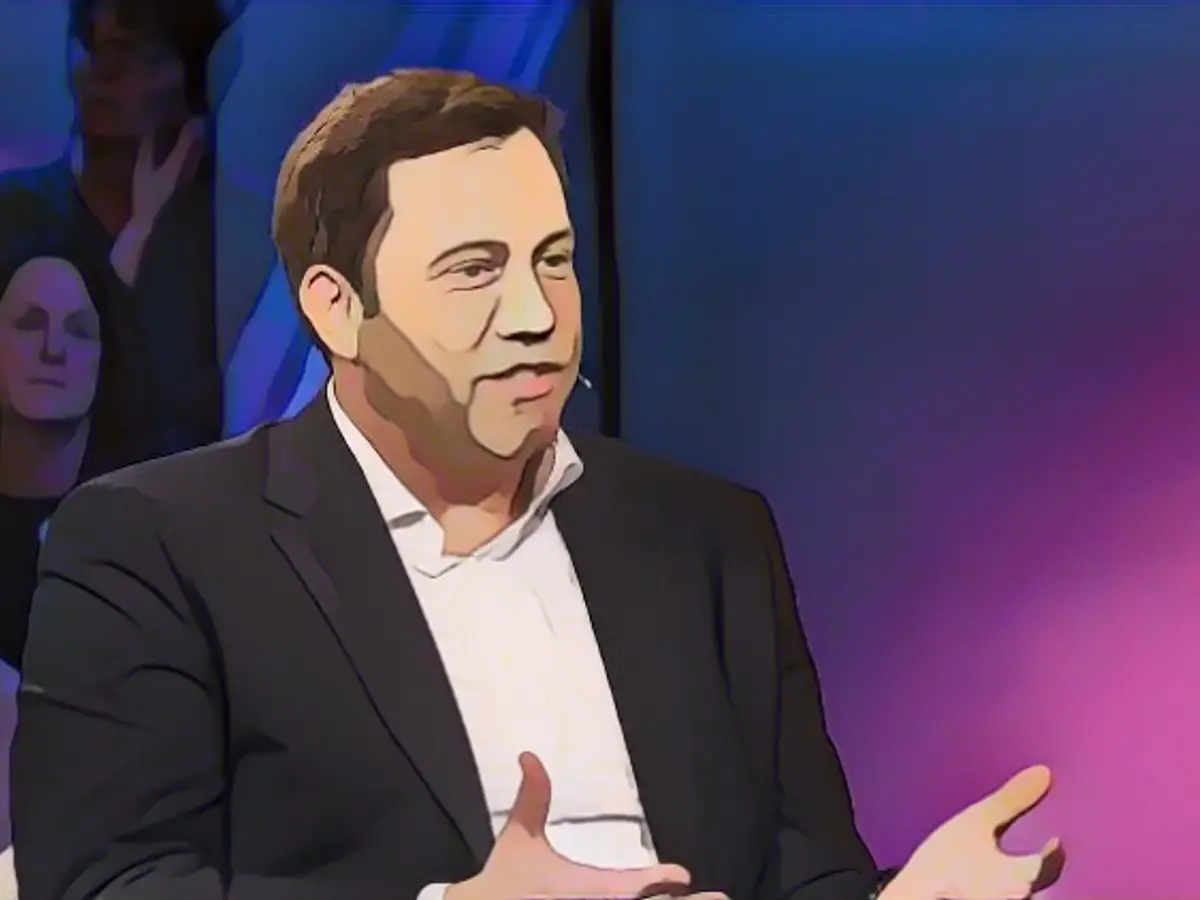Klingbeil expects the budget crisis to be resolved soon
The Chancellor and two of his ministers are struggling to find a way out of the budget dilemma. Whether and when they will reach an agreement is written in the stars - but time is running out. SPD leader Klingbeil is confident that things will work out before the New Year.
SPD leader Lars Klingbeil expects a "political clarification" of the budget crisis before the end of the year. Even if Chancellor Olaf Scholz, Federal Economics Minister Robert Habeck and Federal Finance Minister Christian Lindner are currently negotiating a solution: "In the end, it is clear that it is not up to the three of them, but rather the parties, the parliamentary groups, together with the government. That's why the coalition committee will decide in the end," Klingbeil emphasized on the ARD programme "maischberger".
"This is the biggest domestic political crisis that this coalition has to overcome," said the SPD leader. Klingbeil cited the renewed declaration of an emergency situation due to the war in Ukraine as a possible way to prepare the budget for the coming year following the Karlsruhe ruling: "We are not in a normal situation as far as the situation in Ukraine is concerned. I want the support to continue. And this is a point where we as the SPD say that we can imagine resolving this situation."
One thing is clear: nothing will happen over Christmas
SPD budget politician Andreas Schwarz told the newspapers of the Mediengruppe Bayern that he personally believes "that it will amount to a provisional budget". This means that the budget will not be adopted until the new year - then a provisional budget would initially apply at the beginning of January, with only necessary expenditure permitted. "I only know that there will be calm between December 24 and 26. What happens next is still open," said Schwarz. He criticized the appearance of the traffic light coalition. "That's our big problem, there's a lot of room for improvement - even with the chancellor."
A fundamental political agreement is a prerequisite for all further steps. And time is running out for that too. The chancellor's and ministers' calendars are full - even if Habeck has decided not to travel to the World Climate Conference in Dubai this week. Lindner is expected to attend the meeting of EU finance ministers in Brussels today. The SPD will then meet tomorrow for its three-day federal party conference - Scholz is due to speak there on Saturday.
The pressure has arisen as a result of the Karlsruhe budget ruling. Germany's highest court declared a reallocation in the budget null and void. This not only means that 60 billion euros that had been budgeted over four years for climate protection projects and the modernization of the economy are missing. The ruling also had an impact on various credit-financed special funds, as it is now clear that the federal government may not set aside emergency loans for later years. As a result, there is a gaping hole of 17 billion euros in next year's budget.
Read also:
- Year of climate records: extreme is the new normal
- Precautionary arrests show Islamist terror threat
- Numerous oil, gas and coal lobbyists at climate conference
- COP28: Emirates announce fund for climate projects
The Federal Government is currently grappling with the need to revise its budgetary policy due to the Karlsruhe budget ruling, which has created a gaping hole of 17 billion euros in next year's budget. Lars Klingbeil, the SPD leader, remains optimistic that a political resolution will be reached before the New Year, emphasizing the collective responsibility of all parties and parliamentary groups.
The ongoing budget crisis, as Klingbeil referred to it, is a significant domestic challenge for the traffic light coalition. SPD budget politician Andreas Schwarz also indicated that a provisional budget might be in order until a comprehensive agreement can be reached in the new year, allowing for only necessary government expenditure at the start of January.
Source: www.ntv.de








